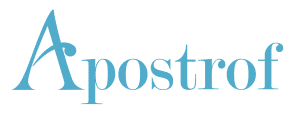Our training courses have taught us to discuss and argue. We indeed spend a lot of time perfecting our written and oral expression. Most training catalogues include a section on speaking, as well as professional writing. But what about the art of asking questions? Why don’t we spend more time learning how to ask relevant interrogations?
At Apostrof, our consultants are trained in strategic questioning. Developed by Frédéric FALISSE, a former sales manager who became a professional Coach, Questiologie® has become a field in its own right. It concerns the realm of questions, which goes far beyond the “basics”, namely open and closed interrogations. As a recruiter, the advantages of questioning are well known. However, our questioning framework has become habitual over time.
So it’s quite rare to challenge the relevance of the questions we frequently use. Similarly, it’s quite unusual to take a step back and take the time to analyse the objective of the questions we regularly ask. And yet, questioning allows us to connect with our clients and candidates. Interrogations are not only essential in engaging another person, but are also the driving force of our own reflection and understanding. In a world where everything is accelerating, the law of productivity encourages us to act quickly.
To meet the imperative of speed and profitability, questions are used to validate what we expect. As a consequence, when we formulate our queries, we elicit the expected response. Whilst it is very effective as a reframing device when leading an interview, this questioning technique is much less effective when we’re looking to get a genuine response from our interlocutor.
Only free expression allows us to understand an individual, who’s still just a stranger the moment they walk into our office, like most of the candidates we meet on a daily basis. So what types of interrogations are at our disposal and how can we use them? Reflective questions, self-assessment questions, filter interrogations, motivational questions.
This list is not exhaustive and there’s no shortage of choice. Nevertheless, the type of question is particularly important for adapting our query to the situation and the register of our interlocutor. It remains crucial to improve our communication in order to confirm their suitability. And you, when was the last time you prepared your questions in depth?
TO LEARN MORE …
Head hunting helps you to target rare and high profils. Attract, engage and match the best talent thanks to Executive Search.
Explore how an individual will perform in the future : Discover our Assessment Center based on simulation of a professional environment.
If you’d like to learn more about assessing and developing your leadership team, get in touch with us, fill in the contact form below.












0 Comments